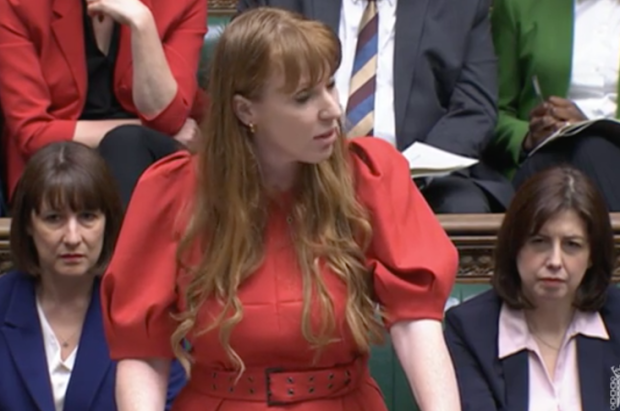There is an idea of the state that argues that the role of government is to act as a benevolent social planner, redistributing resources for the benefit of the population as a whole. British governance has more in common with Mancur Olson’s concept of the stationary bandit, a tyrant with a captive population and a desire to maximise the wealth he can extract. The only twist is that rather than a group of warriors seizing wealth by force, Britain works to the benefit of a large number of elderly pensioners thanks to their tendency to reliably turn out at the polls.
To very briefly recap, years of austerity cuts combined with triple locking pensions ensured that while working-age families — particularly those with children — lost out, pensioners were protected. When Covid-19 reached Britain, those same young people were asked to stay at home to once again protect the elderly and did it willingly.
Someone unaccustomed to the British public might think that older generations, acutely aware that their health and wellbeing has been preserved at the price of imprisoning the young for some of their best years, would be moving heaven and earth to thank them for it.
Instead, the government is planning a smash and grab on the incomes of the young. It’s important to be clear about exactly what the proposal to raise national insurance is; this is a tax that is paid by those under state pension age. Boris Johnson and Rishi Sunak are turning round to young people who have made tremendous sacrifices, and demanding that they once again pay up for their wealthier elders.
It is sometimes assumed that this will work out in the long run. After all, that wealth will be passed down eventually, making Millennials one of the wealthiest generations ever. There are two problems with this. The first is that these windfalls will be highly uneven; some will become millionaires, and others will receive nothing. Taxing the latter to preserve the inheritances of the former is deeply inequitable. Perhaps more importantly, as longevity increases, the age at which people inherit is pushed back to their sixties or seventies, too late for raising families of their own.
For people raised in cultures with a sense of intergenerational obligation and duty, that voters would countenance this situation continuing may be deeply confusing. It is important to understand that the core attitude of the British old is one of deep entitlement, which they project onto those around them. Their mythology is of the self-made generation, ignoring the hand-ups that they received from their parents and the hand-outs they received from the state; their wealth belongs to them, and should not be drawn down by the need to pay for their living costs, but instead should rest safely untouched on a balance sheet until they die.
And in fairness, they have worked for that wealth. They have organised politically to prevent the building of new houses, ensuring their assets appreciate in value far beyond their worth, and to vote themselves ever-higher benefits while insisting on cuts for the feckless young. In other words, they are bandits extracting wealth. And like bandits when there is no clear dynastic succession, they are taking as much as they can before the end of their lifespan.
The unwillingness of the political system to push back against this is easily explained; turnout, eligibility, and generational size mean that the over fifty-fives form a majority of the voting public. Britain is less a democracy than a gerontocracy.
We are used to anxiety from the right over whether young people will continue to support capitalism if they cannot own capital. What is less discussed is whether they will continue to support democratic governance if they cannot win elections.
While some people may be deeply attached to a way of governance on the grounds of values, it is hard not to suspect that support for many is almost entirely instrumental; democratic governance is the best way that they have to balance their interests against those of others, to guarantee their rights when out of power and to see in the future a chance to govern again. When political parties begin to orient themselves along demographic lines, those who find themselves continually on the losing side may no longer find that democratic government is a desirable instrument towards given ends.
It is probably not a coincidence that satisfaction with democracy in Anglo-Saxon countries drops off significantly in younger generations. The demands of the young are not excessive; they want stable employment, affordable housing and to be able to start a family — for which gig economy jobs, skyrocketing rents and whippet hybrids in posh dog beds are poor substitutes. Above all, they want to live in a country that takes their wellbeing seriously, rather than viewing it as an irritating constraint on the ability of the state to extract every last drop of blood from them in service of the grey vote.
This should not be impossible for the political system to deliver. If it is, then young people can’t be blamed if their interest in alternative ways of governance with markedly more left-wing economic outcomes strengthens. After all, why should the young and strong support a system that exists for the old and weak to take from them?
Got something to add? Join the discussion and comment below.
Get 10 issues for just $10
Subscribe to The Spectator Australia today for the next 10 magazine issues, plus full online access, for just $10.



















Comments
Don't miss out
Join the conversation with other Spectator Australia readers. Subscribe to leave a comment.
SUBSCRIBEAlready a subscriber? Log in